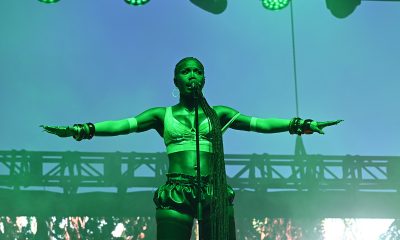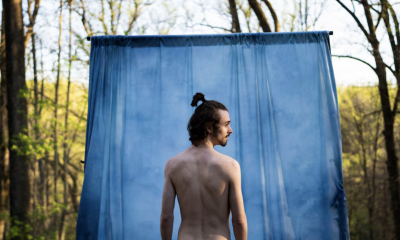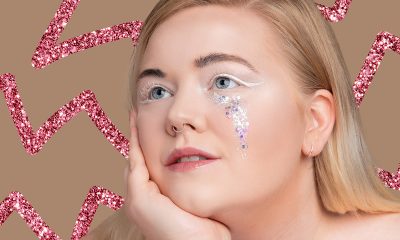Arts & Entertainment
High notes for ‘Show Boat’
Opera singer Cambridge returns for fourth appearance with WNO
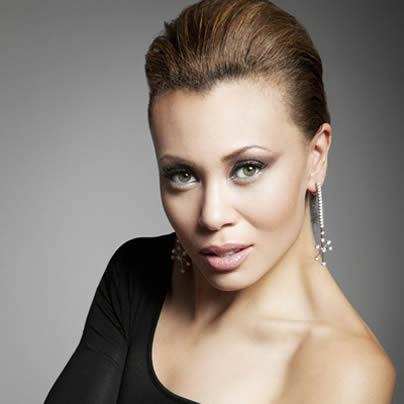
‘Show Boat’
Opens Saturday, runs through May 26
Washington National Opera
Kennedy Center Opera House
(2700 F Street, NW)
$25-$270
kennedy-center.org
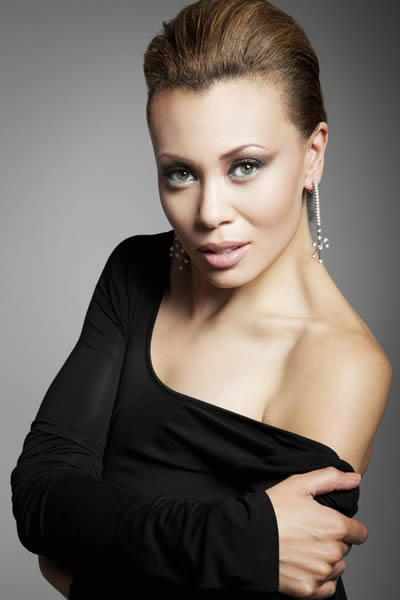
Soprano Alyson Cambridge says she’s thrilled to bring ‘Show Boat’ to her native Washington. (Photo by Enrique Vega; courtesy Bucklesweet Media)
D.C.-area native Alyson Cambridge starts a triumphant homecoming this weekend.
The former Arlington, Va., resident — she grew up here — has made a splash in the opera world with debuts at the Metropolitan Opera and other top-level houses in major productions. She opens Saturday in the classic musical “Show Boat,” the Kern/Hammerstein masterpiece that will feature more than 100 singers, actors and dancers on the Kennedy Center Opera House Stage to tell the story of a troupe of riverboat performers as they make their way through the decades. It features classic songs such as “Ol’ Man River” and “Can’t Help Lovin’ Dat Man.”
Cambridge stars as Julie. It will be a busy month for the performer. She’ll also sing the National Anthem at the Washington Nationals game on May 11. And on May 18, the production will be broadcast live to Nationals Park for WNO’s annual “Opera in the Outfield” event. Cambridge opened the show in Chicago last year and says during a lengthy phone chat from her home in Manhattan, she’s excited about bringing it to D.C. (Cambridge’s comments have been edited for length.)
BLADE: You still have family here?
CAMBRIDGE: Yes, my parents still live in the same house I grew up in and my brother and sister-in-law live in Falls Church with my niece who’s 1 so yeah, it’s been great spending time with my niece.
BLADE: How is the art/theater/music vibe different in New York versus Washington?
CAMBRIDGE: New York is a completely different world. I’ve been there almost 11 years so it feels like home now and I’m used to a fast-paced life where I’m constantly being surrounded by artists, singers, actors and dancers all the time. The person behind the counter at Starbucks is an aspiring acturess. It’s just in the culture that there’s this assumption that you have some ties to the arts. You just feel that vibe all the time here.
BLADE: How was the Chicago run?
CAMBRIDGE: Really wonderful. It was the first time for many of us coming to this show .. and my first time doing a musical like this on such a grand scale. About half the cast is new for D.C. and it’s been wonderful welcoming so many newcomers to this production. I can truly say, there’s not a weak link in the cast, everybody is just so strong. … I hope D.C. embraces the show as much as Chicago did. We were completely sold out there and it was the toughest ticket in town to get.
BLADE: Most of your professional work has been in opera. Are the lines blurring between the opera world and musical theater and if so, is that a good thing?
CAMBRIDGE: I’ve seen a lot of change just within the last four years or so. I did “Porgy & Bess” in Washington in 2005 and came back in 2010 and the reception was very different. It’s considered a show in the more operatic vein and was really written for classically trained voices. Even just a few years ago, people warned me, ‘Oh, be careful — if you start with that, people won’t see you as a truly legit opera singer,’ but I think what we’re doing is really opening up these musical worlds to different audiences and I think it’s the perfect blend.
BLADE: Whatever raw talent you were blest with, as you discovered it and what your strengths were, did that line up pretty naturally with your musical interests as a teen or did you have to learn to appreciate opera, which can be an acquired taste?
CAMBRIDGE: Oh, back in the ‘90s I listened to pop singers and wanted to be a pop singer. I’d be blasting Christina Aguilera out of my car on campus but I discovered I could imitate any voice I heard and had a really finely tuned ear. My mom would have classical music on and I could imitate the opera singers and we had a neighbor say once, ‘You know, that’s not half bad.’ … This led to voice lessons … where I was eventually told I had natural ability in this genre. But yes, it took awhile for me to really embrace what my voice was meant to do. But yeah, Madonna, Whitney Houston, Tiffany, I loved all that too and even went through a rap phase.
BLADE: Does it feel really competitive and cut throat as your career unfolds or is there a level you get to where you don’t feel like the next soprano is just waiting in the wings snapping at your heels?
CAMBRIDGE: I think everybody has their own unique path. Mine was pretty fast. I literally went from Curtis to the Metropolitan Opera’s young artist program by the time I was 23 and had my Met debut at 24, but I have certainly leanred you’re always a work in progress and I think it’s a misconception that you don’t have to keep learning. … It’s very much about always coming out and bringing your A game.
BLADE: What is your tessitura?
CAMBRIDGE: I’m a full lyric soprano.
BLADE: Is that the highest one? I can never remember.
CAMBRIDGE: No, a coloratura is the highest and the lightest … It’s a fuller sound with more meat to it. … The role of Julie, is really a mezzo role. It’s quite low but it suits me quite well.
BLADE: Do you have a gay best friend in New York? Your world must be teeming with gay energy.
CAMBRIDGE: It’s all over the map. I’m surrounded by gay people, trans people, bi — everything. It’s really all across the map. But yeah, I’m going to the wedding of one of my college best friends this summer in New York. She was straight all through college but she’s marrying a woman and she’s never been happier.
Sports
Trans cyclist’s victory sparks outrage in conservative media
Katheryn Phillips is originally from DC

On the heels of UPenn erasing the record of the first openly transgender NCAA Division I All-American swimmer and the U.S. Supreme Court’s decision to tackle bans on trans student-athletes, right wing media is now all hot and bothered about the latest trans woman who won a cycling championship — even though she competed according to the rules.
On Tuesday, 58-year-old Katheryn Phillips finished first in USA Cycling’s Lyons Masters National Championship race for women aged 55-59, with a time of 1:42:10, according to the official results posted by the organization. The record shows her gender as “F” for female.
One second behind Phillips was Julie Peterson, with a time of 1:42:11 — as were three other cyclists: Mary Beth Grier, Andrea Cherniak-Tyson, and Carolyn Maddox.
Peterson, 57, was so outraged, she told Fox News she refused to stand on the podium in second place next to Phillips. Her story was swiftly shared by the New York Post (also owned by Fox’s parent company News Corp.), the Daily Mail, Breitbart, and other conservative media.
Both Peterson and another competitor are accusing USA Cycling of “hiding” that a transgender woman had registered to race.
“It was hidden from us. Katheryn Phillips, KJ’s name, was not on that list. And I checked it up all the way to the point of closure when we couldn’t register online anymore,” Debbie Milne told Fox.
“If I had known, I wouldn’t have spent thousands of dollars in travel and time off work to come and do a race,” Peterson said. Fox welcomed Milne, 56, who finished seventh on Tuesday, to Fox & Friends Thursday morning.
(Video courtesy of Fox News)
Peterson told Fox she did complain to USA Cycling officials prior to the race. Both Milne and Peterson referred to Phillips as a male, and with “he/him” pronouns.
“To be fair to all humans, if we want to say ‘him’ or ‘her,’ he was born a biological male, that is a fact,” Milne said. “And that is the thing that makes it an unfair advantage. Whatever has happened after that is a whole different topic.”
“I said, ‘I don’t want to race against a man,’ and they quickly scolded me and said ‘Oh, you can’t call him a man,’ and I’m like ‘Well, he is a man,’ so I was quickly scolded and corrected that it is a woman and I don’t even know what to say.”
USA Cycling did not respond to the Washington Blade’s emails requesting comment.
Phillips, who goes by Kate and by “KJ,” is a former rugby player with the D.C. Furries, who stated in the comments of a 2024 article published by Zwift Insider that she was the first out trans athlete in the U.S. to compete under the 2004 International Olympic Committee’s guidelines on trans participation.
“When USA Rugby told me about the IOC decision in 2004, I raised my hand to be included. I experience nothing but joy when I play, ride, and race,” Phillips said.
As the Blade has reported, the International Olympic Committee drastically revised those rules in 2021, and in March, Republican lawmakers in D.C. demanded the IOC ban trans female athletes from women’s sporting events altogether.
The Blade also reached out to Phillips for comment but as of press time we have not received a response. She told Zwift Insider in March 2024 she does not let those who disapprove or spread hate impact her performance or her attitude.
“I am unaffected by dissent. I love, I share joy, I am me, and I have been my authentic self for decades,” she said. It’s been reported Phillips came out in 1999, and told Zwift Insider she considers herself a lifelong cyclist.
“I’ve been on a bike for as long as I can remember,” said Phillips. “As kids, my friends and I rode all over town, we were feral kids; no cell phones, no trackers … we just roamed, and nobody got in trouble or hurt bad enough not to ride home … Scrapes/bruises/cuts were not an issue for us. In my teens, I worked for myself as a court/legal messenger, doing all of the work via my bike until I got a car. Raced BMX as a kiddo (when I mowed lawns to cover the race entry fees), I did MTB stuff (non-racing) and Sprint/Olympic Triathlons in my 30’s, and now I’m racing on Zwift, Road/Gravel, and CX in my 50s.”
In the comments section, Phillips made clear she’s not competing to win.
“I don’t do sports for victory, I do it because like many other women, I am an athlete to my core,” she said. “Unlike some, I am not there to WIN, I am there to do my best with the competitors and teammates I have around me trying to do the same…we are in it for the experience. I rejoice in their wins, and a lot of joy is reflected back to me when I have a good day.”
Celebrity News
Nina West’s ‘Sugar in the Tank’ tour comes to Rehoboth Beach
Drag Race’ contestant will be at Clear Space Theater Company on July 6
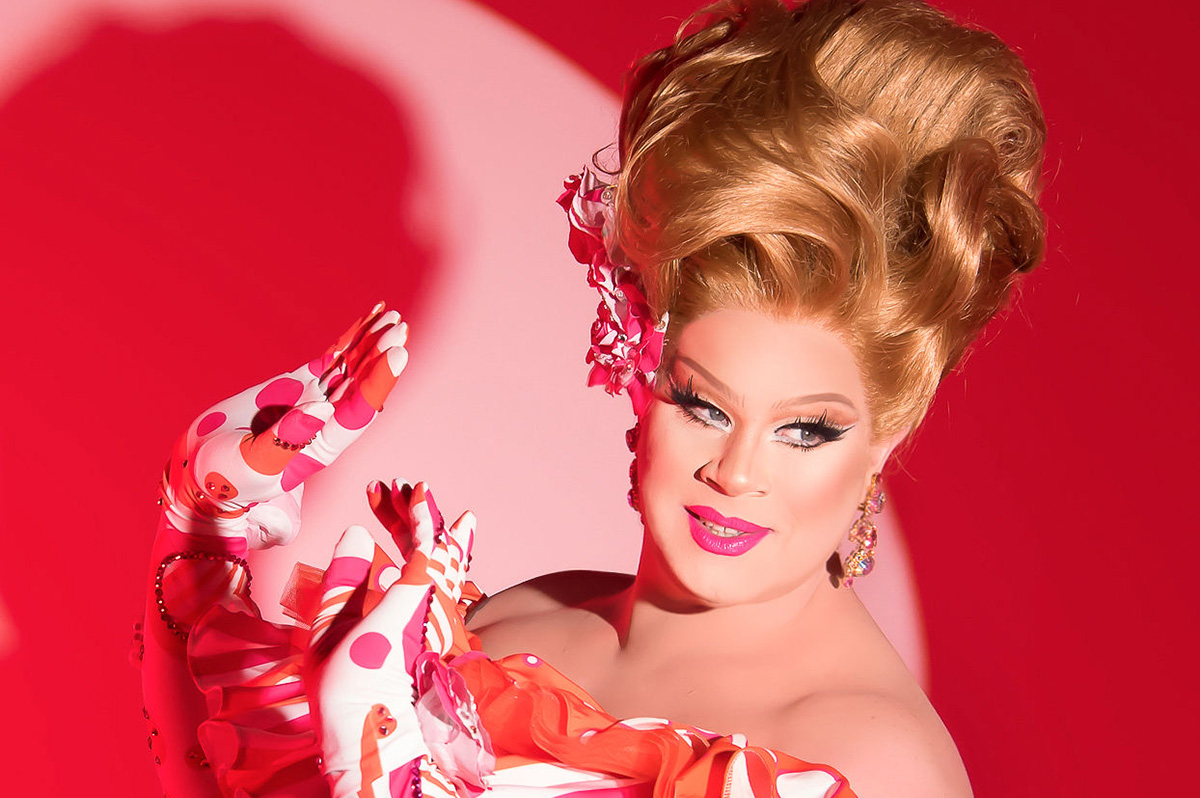
Nina West, a drag queen known for competing on “RuPaul’s Drag Race,” is currently on her ‘Sugar in the Tank’ tour around U.S. cities.
With previous shows in Key West, Fla., New York, and hometown of Columbus, Ohio, the tour is staying put in Provincetown, Mass., from late July to early September. It will make a stop at Clear Space Theater Company in Rehoboth Beach, Del., as part of a summer cabaret series on July 6.
Andrew Levitt has been performing as Nina West for 25 years, who got her rise from starring in “Drag Race” Season 11, where she placed sixth and won Miss Congeniality, a title awarded to the contestant who is regarded as the kindest and most helpful one of that season.
West has toured “Hairspray” on Broadway as Edna Turnblad, starred in a couple of feature films and published a children’s book titled ‘The You Kind of Kind.’
Levitt said he wrote this show in response to attacks from the government towards the LGBTQ community.
“‘Sugar in the Tank’ is a big old gay fabulous summer musical,” Levitt told the Washington Blade. “The show is a response to the darkness that I think has fallen over a lot of people in the country and it’s hopefully trying to bring a little bit of light and a little bit of joy.”
“Sugar in the Tank” is a Southern euphemism for gay, often holding a negative connotation. Levitt said he wanted to “reclaim and embrace” queerness in times when some people want to take that away.
Levitt said he knew he would be traveling to predominantly queer destinations like Key West and Provincetown for these shows and that was always at the forefront of his mind when writing “Sugar in the Tank.”
This will be Levitt’s first time in Rehoboth Beach. Clear Space Theater is considered Delaware’s second-largest professional non-profit theater and the state’s most prolific producer of professional theater. The space seats just 170 patrons and Levitt said he loves the intimacy of a small venue and that it’s his favorite way to do a show.
“Stages like this size are the perfect size for me because it allows for me to really showcase my talents,” Levitt said.
Levitt founded the Nina West Foundation in 2015 to uplift and sustain the central Ohio LGBTQ community, which has raised more than $3 million for various organizations. He said he makes activism part of the entertainment in his career.
“That’s the nuance of what drag is. We can be ridiculous for fun and we can be serious but it’s all wrapped up into one thing,” Levitt said. “I think that can be the power of it.”
Levitt said West is so much more confident now than when he first started performing as her. He didn’t know where his voice belonged in the community in the past, but because of those who came before him in this art form, he has learned to harness the power of the stage and the power of the wig to be able to tell stories.
“I really love my community. I love queer people. I love who we are and what we represent,” Levitt said. “Knowing our history and knowing that we’ve been through a lot, I’m really thrilled that as a queen, I can use my voice and my platform to help try to better our community, not try to speak for everyone but try to lend voice to people who desperately need it.”
Levitt’s advice to young queer artists is to not give up on yourself, surround yourself with supportive people and allow yourself the opportunity and space to fail, to ask questions, and to not give up.
“Our young people have got to be told they matter,” Levitt said. “Oftentimes, people are told that they don’t matter, that their voice doesn’t matter, that they cannot make a difference and I want to remind every single person who’s doing this that they do matter, they can make a difference, their voice is intrinsic to who we are as a community.”
If Sugar in the Tank was a drink, it would be a Bahama Mama or Sex on the Beach, said Levitt, because they are delicious, juicy, and sugary, just like the show.
“I just want everyone to know that they should come to ‘Sugar in the Tank’ and experience a show that’s built on joy and levity and silliness and fun and come have some fun with me and show me the fabulous love of Rehoboth Beach,” Levitt said. “I can’t wait.”
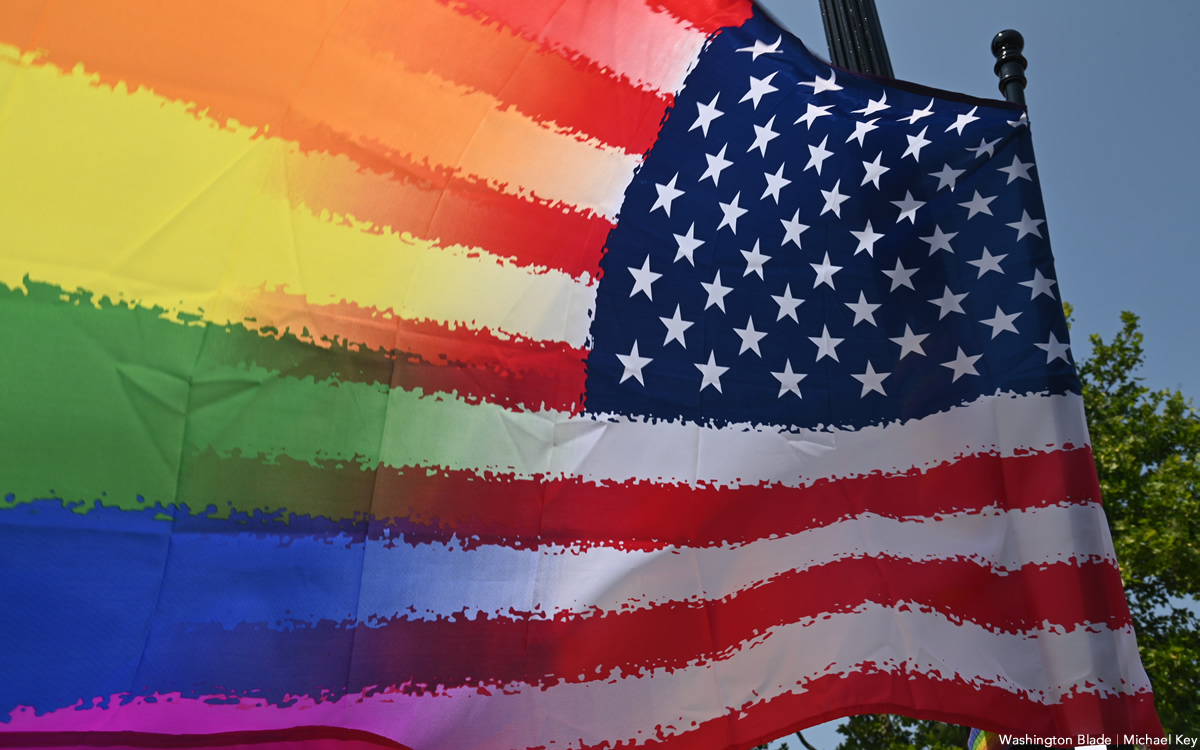
The Rainbow History Project will host “Pickets, Protests and Parade Exhibit Tour” at 7 p.m. at Freedom Plaza. This event honors the courage, resilience and resistance of D.C.’s gay community. For more details, visit Eventbrite.
Go Gay DC will host “LGBTQ Community Social” at 7 p.m. at Hyatt Centric Arlington (1325 Wilson Blvd.). This fun event is ideal for meeting new people and community building. Attendance is free and more details are available on Eventbrite.
Xavier Entertainment DC will host “Cowboy Carter Afterparty” at 10 p.m. at Nellie’s Sports Bar. There will be fireworks, parades, and patriotic fun. For more details, visit Eventbrite.
Mezcal Amaras will host “Sha Boing Boing Showdown” at 6 p.m. at Snappy’s Small Bar (3917 Georgia Ave., N.W.). Get ready to test your hotdog eating abilities. Tickets start at $12.51 and can be purchased on Eventbrite.
Illusions Drag Queen Show will host “Drag Queen Dinner Show” at 7 p.m. at 2323 18th St. N.W. Guests will be treated to the very best celebrity drag impersonations in entertainment. Tickets start at $12.97 and are available on Eventbrite.
Thurst Lounge will host “A Thirsty Cowboy Afterparty” at 5 p.m. DJ Apollo will be performing. For more details, visit Thurst’s website.
9:30 Club will host “Gimme Gimme Disco: A Dance Party Inspired by ABBA” at 9 p.m. The DJ will play plenty of disco hits from the 70s and 80s. Tickets cost $45.30 and can be purchased on Ticketmaster.
-

 Hungary4 days ago
Hungary4 days agoUpwards of 100K people march in Budapest Pride
-

 U.S. Supreme Court11 hours ago
U.S. Supreme Court11 hours agoSupreme Court to consider bans on trans athletes in school sports
-

 Out & About12 hours ago
Out & About12 hours agoCelebrate the Fourth of July the gay way!
-

 Opinions4 days ago
Opinions4 days agoSupreme Court decision on opt outs for LGBTQ books in classrooms will likely accelerate censorship

